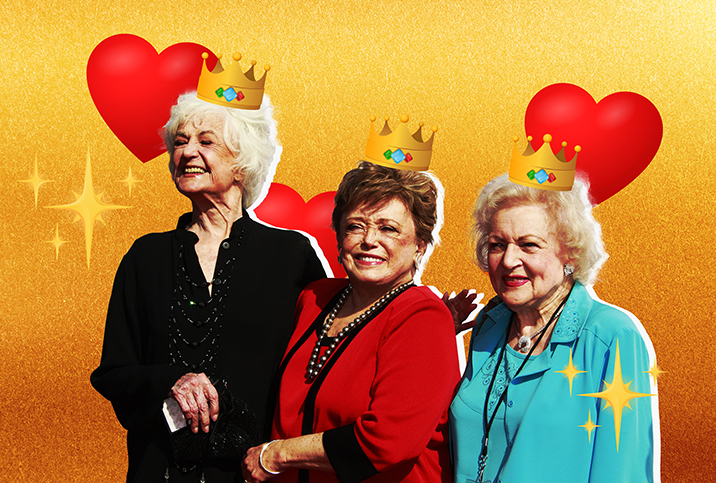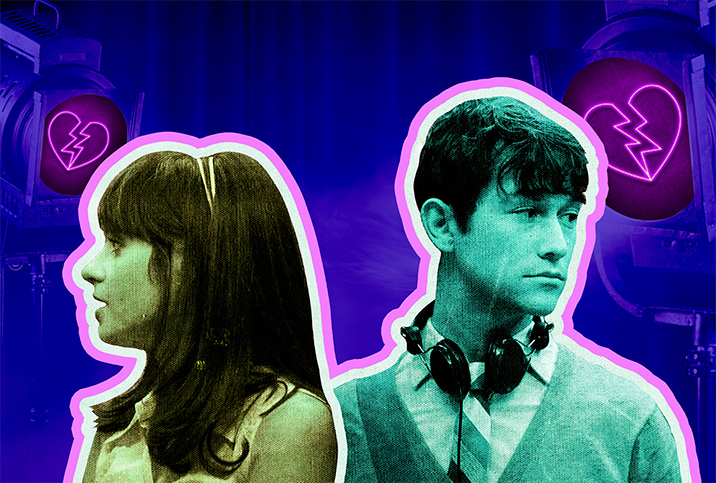Why Would You Want to Be Like Those Famous Toxic Couples?

Key Points
- Romeo and Juliet may seem like the greatest romance, but it depends on your point of view. Just ask Romeo's ex, Rosaline; she's not happy at all.
- You better know the difference between enjoying a fictional story and romanticizing the characters.
- Romantic comedies are misleading about expectations of love, lust and sexual pleasure.
Did William Shakespeare create the greatest romance of all time when he penned his play "Romeo and Juliet?"
It all depends on your point of view, according to Karen Maine, the director of the 2022 movie "Rosaline." In the original play, Rosaline gets a brief mention at the beginning as a reference only as the girl Romeo has a crush on. Aside from being Juliet's cousin, that's all we know and really the last we hear from her.
In the updated movie, Rosaline (played by actor Kaitlyn Dever) is the center of the plot and is very angry at how things turned out with her cousin and her ex.
Of course, no one relishes the tragic ending of Shakespeare's tale, but who wouldn't love that level of romance in our lives? Even if that romance came with some serious psychological baggage—and yes, that's a reference to tech billionaire Christian Grey, the male protagonist of the fictional trilogy "Fifty Shades of Grey," written by E. L. James.
A happily ever after?
Don't panic. There's nothing wrong if you like a movie with unhealthy relationships. It's just entertainment designed to create common situations that hook you.
"In order for a movie—or book or song—to be largely popular, it must have characters with which people can identify," said Krista Jordan, Ph.D., a board-certified licensed clinical psychologist and trained couples therapist in Austin, Texas. "They must have a mixture of positive and negative traits to make them believable."
Consumers need to know the difference between enjoying a fictional story and romanticizing these characters. However, by the end of the movie, it's understandable to expect love to win the day, even in some of the worst relationships.
"If we can see these characters prevail, we believe that there is hope for us as well, as we all know deep down that we, too, are flawed," Jordan said.
Unrealistic expectations in fiction
"What many fictional stories have in common is the fantasy of a heterosexual man who is so drawn to the woman that he's willing to jump over many hurdles," said Sari Cooper, L.C.S.W.-R., certified sex therapist and the founder of Center for Love and Sex in New York City. "The formula follows the common narrative of erotic novels. Some plots even trace back to Shakespeare classics like 'Twelfth Night,' 'Midsummer Night's Dream' and 'Love's Labour's Lost.'"
Just as sexually explicit media can be misleading about realistic expectations of sex and consent, romantic comedies are misleading about expectations of love, lust and sexual pleasure, according to Cooper.
"They do not represent, prepare or educate viewers on what stages a real long-term relationship goes through," Cooper said.
Recommended
- Why Rewatching Your Favorite TV Shows Feels So Good: For anxious people, returning to a well-loved program unlocks all kinds of benefits.
- It's Time We Talked About 'Experts' on Reality Dating Shows: Some viewers may agree the advice is typically bad, so take it with a grain of salt.
- A Guide to Dating Apps for Men: Do's, Don'ts and FAQs: Here's the skinny for cisgender fellas on how to optimize your use of dating apps.
The key to your childhood
What you see and relate to on the screen can help you recreate your past or stimulate those patterns you find yourself inclined to as an adult in your relationships. Without realizing it, you may find yourself drawn to these characters.
"So, if for instance, I had a depressed father whom I was always trying to cheer up, I would be especially drawn to a movie in which the protagonist has a depressed partner," Jordan said. "Our subconscious mind is constantly trying to figure out how to re-work our childhood dilemmas."
According to psychological research, the emotional support you receive in your early years impacts your romantic associations. This is because the foundation for healthy relationships begins in the examples set by your parents.
"Whether people realize it or not, part of what happens in childhood is that we are establishing what we understand the 'rules' of relationships to be," Jordan added. "If our parents are neglectful, some part of us internalizes that relationships involve neglect."
Blind spots
Behaviors you saw growing up in your house or in the media can make you normalize situations that could be red flags in relationships. If you grew up in an environment where toxic patterns of behavior—manipulation, continuous fighting, overflowing jealousy, obsession, possessiveness—were considered normal behavior, it may be difficult for you to distinguish what's normal in your current life.
For example, movie watchers remember how romantic Noah (played by Ryan Gosling) is about dedicating his life to Allie (played by Rachel McAdams), his wife with Alzheimer's, in the 2004 movie "The Notebook." But you may have forgotten that he put his life at risk on a Ferris wheel to get a date with her. At the same time, she slaps him in almost every fight. That behavior may be code for passion in many fictional stories but, let's face it, that's violence.
"The classic 'How to Lose a Guy in 10 Days' shows the outrageous lengths to which each partner will go in order to win a bet," Cooper said. "The message is that love and lust can even conquer these awful personality traits."
"How to Lose a Guy in 10 Days" is a 2003 movie starring Kate Hudson and Matthew McConaughey.
The catchy songs and stunning dance routines of the 1978 movie "Grease" distracted our attention from one message: Sandy (played by Olivia Newton-John) reinvents her life and closet to impress her boyfriend Dany (played by John Travolta).
And let's not forget Bella (played by Kristen Stewart) in the 2008 movie "Twilight." She puts her life in danger because she can't accept that her more than 100-year-old immortal boyfriend, Edward (played by Robert Pattinson), dumped her.
"The plotline of the beloved classic 1993 romcom, 'Sleepless in Seattle' has Meg Ryan's character digging up Tom Hanks' home address and flying across the country to track him down after hearing his voice on the radio," Cooper said. "If that's not stalkerish, I don't know what is."
Does Normalizing 'Therapy Speak' Help or Hurt Our Relationships?: Terms such as "triggered," "trauma" and "boundaries" have become used increasingly in everyday communication, making it more normalized. Therapist-like terms could be weaponized by your partner and friends to do you harm.
The object of desire
In 2014, researchers Lori Brotto and Anthony Bogaert proposed a theory about the object of desire self-consciousness (ODSC). They defined it as "the perception that one is romantically and sexually desirable in another's eyes," Cooper explained.
"This is why these storylines pique women's sexual fantasies," she said. "Because they identify with the female heroines when they become enlightened to the outsized erotic significance of their own desirability by a conventionally attractive leading man."
An example of this depiction of desire can be seen in the Netflix TV series "Never Have I Ever." Paxton (played by Darren Barnet) is already outside the bedroom window of the heroine, Devi (played by Maitreyi Ramakrishnan), staring at her as he's texting to ask if she wants company.
"This would be considered a type of stalking and voyeurism," Cooper said. "As well, many times in movies, the leading man surprises the heroine, thereby not giving them realistic time to think about what they want and what they would consent to."
If this were another boy she wasn't interested in, she'd probably have started screaming, Cooper added, but she likes him. This doesn't just involve Devi. In this scene, the audience identifies with Devi's object of desire self-consciousness.
"Because this is produced entertainment for the masses, it becomes so unrealistic that it frequently crosses many boundaries of consent," she said. "However, in real life, early nonconsensual behavior can be a red flag for potential future toxicity in a relationship."


















